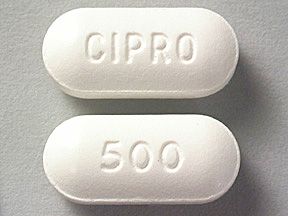 A case study published in Dermatology Online Journal may have revealed a new risk factor for Stevens Johnson Syndrome for patients taking Cipro and other drugs.
A case study published in Dermatology Online Journal may have revealed a new risk factor for Stevens Johnson Syndrome for patients taking Cipro and other drugs.
Stevens Johnson Syndrome, or SJS, is an autoimmune reaction. In autoimmune reactions, the body attacks its own tissues and organs as it would an invading bacteria.
In the case of SJS, the body attacks its own skin. SJS symptoms start with generalized flu-like symptoms, but within hours or days, the patient develops a purple rash which escalates to widespread sores, blisters and ulcers.
The damage can spread to the surface of internal organs, the inside of the mouth and nose, and even the eyes. SJS can be fatal, and survivors may face lifelong complications like disfiguring and disabling scars, and even permanent blindness.
SJS is relatively rare, which makes it hard to study. As such, many questions remain about SJS. However, it is known that nearly every case of SJS can be traced back to a reaction to a drug, and Cipro is among the drugs that physicians consider a potential trigger for SJS.
Cipro, or ciprofloxin, is a type of antibiotic. It belongs to the fluoroquinolone family within the quinolone antibiotics. Quinolones are very effective against a wide variety of bacterial infections and for most people, have relatively few side effects.
At one point, Cipro briefly earned something of a degree of drug celebrity in the United States. During the bioterrorism incidents following 9/11, Cipro was the only antibiotic approved for use in treating in anthrax, and as such the drug was horded during the general unrest following the 9/11 terrorist attacks.
Since then, several other fluoroquinolones have been tested and approved to treat anthracis infection. However, fluoroquinolone antibiotics like Cipro have been listed as potential causes of SJS in susceptible individuals.
A 2009 case report from Sitia in Greece reported that a 66-year-old woman was admitted in the early stages of Stevens Johnson Syndrome after taking Cipro. The patient had a fever and fatigue for two days, and soon after admission, she began to develop a rash with blisters, a key diagnostic among SJS symptoms.
Between 15 and 20 percent of her body erupted in the blistering rash, which she described as having a burning sensation. The rash was mostly on her torso, and unlike many patients she suffered little damage on her hands and feet.
Her physicians speculated that the patient’s SJS may have involved more than one drug. In this case, the patient had been taking a synthetic thyroid hormone after her thyroid gland had been removed due to disease.
It is known that the hormone in question, levothyroxine, can interfere with liver function and slow the metabolism of other drugs. Physicians speculated that this may have meant that it took her longer than usual to break down Cipro and its byproducts within her body, giving her a better-than-average chance of developing SJS from Cipro.
Do YOU have a legal claim? Fill out the form on this page now for a free, immediate, and confidential case evaluation. The attorneys who work with Top Class Actions will contact you if you qualify to let you know if an individual lawsuit or class action lawsuit is best for you. [In general, quinolone lawsuits are filed individually by each plaintiff and are not class actions.] Hurry — statutes of limitations may apply.
ATTORNEY ADVERTISING
Top Class Actions is a Proud Member of the American Bar Association
LEGAL INFORMATION IS NOT LEGAL ADVICE
Top Class Actions Legal Statement
©2008 – 2025 Top Class Actions® LLC
Various Trademarks held by their respective owners
This website is not intended for viewing or usage by European Union citizens.
Get Help – It’s Free
Join a Free Quinolone Class Action Lawsuit Investigation
If you or someone you know took Cipro, Levaquin, Avelox or another quinolone antibiotic and were diagnosed with liver failure, Stevens Johnson Syndrome (SJS) or toxic epidermal necrolysis (TEN), you may have a legal claim. See if you qualify by submitting your information below for a free and confidential case review.
An attorney will contact you if you qualify to discuss the details of your potential case at no charge to you.
Oops! We could not locate your form.












